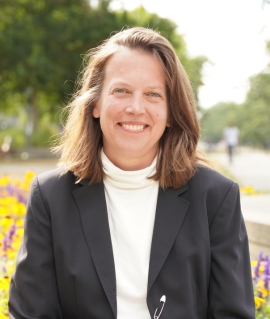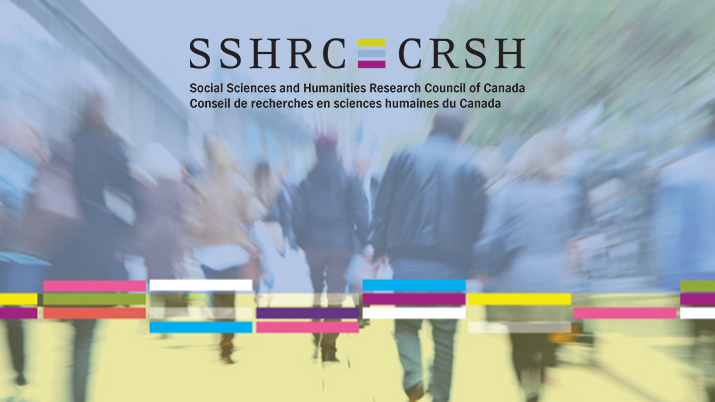Christiane Hoppmann
Research Area
Education
PhD, Free University of Berlin, 2004
About
Dr. Christiane Hoppmann is Professor, Canada Research Chair and Associate Dean Research & Graduate Studies in the Faculty of Arts. She is also a core member of the Edwin S.H. Leong Center for Healthy Aging at UBC.
Teaching
Research
Dr. Hoppmann examines how social relationships and goals promote health and wellbeing. Her projects focus on everyday processes using novel daily life assessments (‘time-sampling’) in combination with stress markers and objectively measured health behaviors.
Dr. Hoppmann’s research is very collaborative and typically involves partners from different disciplines, local stakeholders, community organizations, and other Canadian and international universities. Her work has been funded by the Canadian Institutes of Health Research, the Social Sciences and Humanities Research Council of Canada, the Australian Research Council, the Vancouver Foundation, the Heart and Stroke Foundation of Canada, and the German Research Foundation. Dr. Hoppmann is Associate Editor of the International Journal of Behavioural Development and serves on the editorial boards of Psychology & Aging and the Journals of Gerontology, Psychological Sciences. She is a Fellow of the Gerontological Society of America.
Publications
Zambrano Garza, E., Pauly, T., Choi, Y., Murphy, R., Wolfgang, L., Ashe, M., Gerstorf, D., Madden, K., Jakobi, J., Hoppmann, C.A. (in press). Daily solitude and well-being associations in older dyads: Evidence from daily life assessments. Applied Psychology.
Choi, Y., Broen, T., Zambrano, E., Pauly, T., Gerstorf, D., & Hoppmann, C. A. (2023). Having time to oneself in times of extended togetherness: The role of living arrangements and relationship characteristics for solitude experience during the COVID-19 Pandemic. Applied Psychology: Health and Well-Being, 15, 217-237.
Choi, Y., Lay, J., Lu, M., Jiang, D., Peng, M., Fung, H. H., Graf, P., & Hoppmann, C. A. (2023). Age differences in the experience of everyday happiness: The role of thinking about the future. Psychology and Aging. https://doi.org/10.1037/pag0000782.supp
Hoppmann, C.A. & Pauly, T. (2022). A Lifespan Psychological Perspective on Solitude. International Journal of Behavioral Development, 46(6), 473–480.
Lee, Y., Lay, J. C., Pauly, T., Graf, P., & Hoppmann, C. A. (2022). Loneliness and social engagement: The differential roles of state and trait loneliness in daily prosocial behaviour. Psychology & Aging. 37(5), 614–625.
Pauly, T., Keller, J., Knoll, N., Michalowski, V. I., Hohl, D. H., Ashe, M. C., Gerstorf, D., Madden, K. M., & Hoppmann, C. A. (2020). Moving in sync: Hourly physical activity and sedentary behavior are synchronized in couples. Annals of Behavioral Medicine, 54(1), 10–21. https://doi.org/10.1093/abm/kaz019
Lay, J., Pauly, T., Graf, P., Biesanz, J., & Hoppmann, C. (2019). By myself and liking it? Predictors of distinct types of solitude experiences in daily life. Journal of Personality. https://doi-org.ezproxy.library.ubc.ca/10.1111/jopy.12421
Pauly, T., Michalowski, V. I., Nater, U. M., Gerstorf, D., Ashe, M. C., Madden, K. M., & Hoppmann, C. A. (2019). Everyday associations between older adults’ physical activity, negative affect, and cortisol. Health Psychology, 38(6), 494–501. https://doi-org.ezproxy.library.ubc.ca/10.1037/hea0000743.sup
Hoppmann, C., & Gerstorf, D. (2016). Social interrelations in aging: The sample case of married couples. In K. W. Schaie & S. L. Willis (Eds.), Handbook of the Psychology of Aging (Vol. 8, pp. 263- 279). San Diego: Elsevier.
Awards
- UBC Killam Research Fellowship (2020)
- Killam Faculty Research Prize (2014)
- Canada Research Chair (2013, 2019)
- American Psychological Association Award (2012)
- Margret M. and Paul B. Baltes Early Career Award in Social and Behavioral Gerontology (2012)
- Michael Smith Foundation for Health Research Scholar Award (2012, 2016)
- Peter Wall Institute for Advanced Studies – Early Career Scholar (2011)
Graduate Supervision
Dr. Hoppmann is accepting graduate students through the health psychology program. Learn more.



